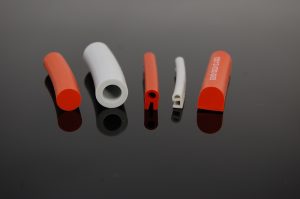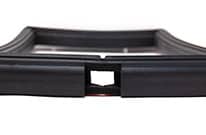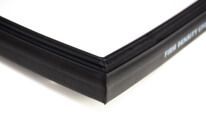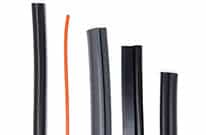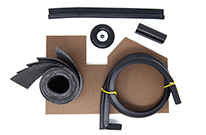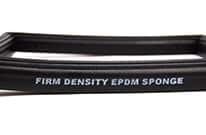Welcome to this edition of Elasto Proxy’s EV Roundup, a summary of newsworthy items about electric vehicles (EVs) and what engineering and procurement personnel need to know. Elasto Proxy makes seals, gaskets, and insulation for the EV industry. We’re ready to support you with projects ranging from EV battery enclosures to charging stations, so contact us to learn more.
Why John Deere Believes in Electric Tractors
Future Farming reports that John Deere is fully committed to electric tractors. Like other types of electrically-driven heavy equipment, they are efficient users of energy and have an attractive weight-to-power ratio. This type of electrified agricultural equipment also features drivelines that that are easy-to-control, a requirement for EVs that are also autonomous.
Rubber-to-Metal Bonding in Electric Cars
GMT examines anti-vibration and vibration control components in electric cars, describes the major benefits of electric vehicles, and examines categories of rubber parts for EVs. These categories are powertrain mounts, suspension mounts, and vehicle closure stops and travel limiters. The article also covers EV components such as cone mounts, H-mounts, bushes and bushings, and rubber bobbins.
What Automotive Engineers Need to Know about EVs
All About Circuits summarizes three things that automotive engineers need to know about electric vehicles: 1) EV battery chemistries, 2) test and measurement systems, and 3) increased connectivity. The article contains references to studies about emerging battery chemistries and an infographic that explains why the increasing complexity vehicles is raising the stakes for cybersecurity.
Thermal Insulation in Electric Vehicles
E-Mobility Engineering considers how EV batteries, motors, and other electric powertrain components can affect other aspects of electric vehicle design. Within the cabin, for example, thermal insulation may be needed beneath the floor to prevent the passage of heat from underfloor EV battery compartments. Depending on the application, polyimide foams may be used.
Electric Road Will Charge EVs
Electric & Hybrid Vehicle Technology International is optimistic about plans to develop a one-mile stretch of road in Detroit, Michigan that will wirelessly charge EVs as the vehicles are driven. The contract for the first public, wireless in-road charging system in the United States was awarded to Electreon, an Israeli company that is shaping the future of fleet operations and EV transportation.
EV Battery Charging: Facts, Figures, and Industry Leaders
GreenBiz describes a U.S. plan to build a national network of 500,000 public EV charging stations. Currently, there are only about 53,000 such stations nationwide. Dozens of charging station companies are competing for a share of the marketplace, and first-generation players such as ChargePoint, Tesla, and ElectrifyAmerica will face competition from new entrants – including some well-known companies.
EMC and EMI Testing Standards for Electric Vehicles
Transient Specialists maintains a list of testing standards for EV engineers who need to meet requirements for electromagnetic compatibility (EMC) and shielding against electromagnetic interference (EMI). From emissions tests to conducted and radiated immunity, there are references both to ISO and CISPR standards and to OEM-specific requirements.
EV Battery Manufacturers Face Material Shortages
Mint reports that polyvinyl fluoride (PVDF), a polymer used in EV batteries, is in short supply. Graphite, a form of carbon that is used to make the negative terminal, or anode, in powerpacks, is also increasingly scarce. Until now, much of the focus on next-generation batteries has been on the cathode, which uses materials such as nickel cobalt manganese and lithium iron phosphate.
We hope you’ve enjoyed this edition of Elasto Proxy’s EV Roundup and welcome your inquiries about how we can help you with your next EV project.

